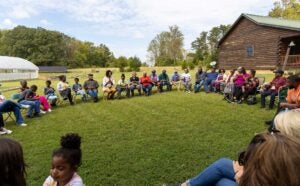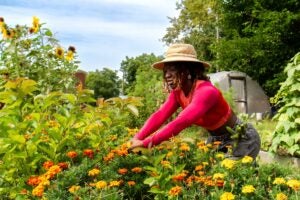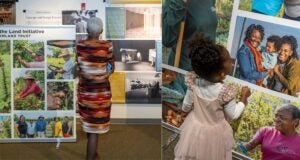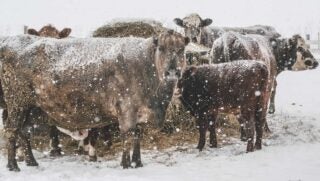American Farmland Trust’s Women for the Land program aims to even the playing field related to owning and operating successful farming operations, focusing on Black, Indigenous, and other People of Color farmers and agrarians in the Southeast. According to the United States Census Bureau (2019), even though BIPOC represents nearly one-quarter of the U.S. population, they operate less than five percent of the nation’s declining number of farmers and cultivate less than one percent of its farmland. In contrast, most of the estimated 2.4 million farmworkers in the U.S. are people of color who do not own or operate farms. Farmer and farmworker populations in this nation are diverse and come from various places, lands, and agricultural practices and bring those differences to their work. Because of these varying differences, when hosting programs that support BIPOC farmers and producers, the information given must be culturally responsive, targeted, and appropriate for the audience. We aim to do this with our programming in the Southeast.
Our Women for the Land program collaborated with Black Family Land Trust, North Carolina State University Extension’s Local Food Program, and consultant Grace Summers to host our first cohort training in North Carolina from February to October 2023, funded by North Carolina Natural Resources Conservation Services. Our cohort focused on connecting BIPOC farmers and producers with resources to extend their farming operations, promoting a more resilient food and agricultural system in the state. We aimed to empower participants to implement climate-smart agricultural conservation practices and skills, increase technical skills around diversifying production and marketing systems for more significant economic and healthy food systems’ resilience, and develop leadership skills to build community resilience around food and agriculture.

Through this series of virtual and in-person monthly Learning Circle sessions, our group created an essential connection with each other and the technical providers who interacted with us. The Learning Circle model is what Women for the Land does well and is part of our programming, no matter the region we’re working in. A Learning Circle allows individuals to meet, explore an issue, and learn from each other. Farmer-to-farmer learning is a productive way to teach producers about new technologies, best practices, and other farm-level planning. Applying the skills needed to address our audience where they are was essential for the success seen throughout the program.
With a specific focus on BIPOC needs, we tailored our approach to addressing issues that face historically underserved producers, pivoting our topics as the need arose. While having an outline of curriculum topics each month was undoubtedly fruitful, it is imperative to address needs as they come so that we can continue to be responsive to the people we aim to assist. Topics such as goal setting, responding to acute weather events, getting into the local food systems beyond local farmers’ markets, and grant writing were topics suggested by our participants and offered areas to deepen knowledge, connections, and resources in the state.

Longstanding structural and institutional prejudices and racism haven’t allowed BIPOC to fully participate in access to land, financial resources, education, and political standing to fully participate in shaping the food system. With this program, we aimed to provide resources for folks to actively and successfully participate in their local landscapes to continue to elevate their leadership positions in communities, address their needs for access to capital to further their operations, and strengthen support in the agriculture sector, leading to more significant opportunities of prosperity while having a more just and sustainable agricultural system.
While there is a greater need for more equitable agricultural practices in this state and nation, we also want to highlight our participants’ positive impacts on their local communities. Through this thought, we chose to uplift stories of success, challenges, and wisdom of BIPOC agrarians because even though the numbers are small and mighty, representation matters. One cannot be what one cannot see. We did a storytelling series on three participants: Erin & Carrie Martin and Family, Chana White, and Linette Hewlin and Family through ongoing partnerships with Rebecca Drobis of Drobis Photography and StoryMine Media. We also visited many of our cohort participants and captured images and videos of their operations through our partnership with NC State University Nallah Muhammad, Carrie & Erin Martin, and Linette Hewlin. This cohort and storytelling series culminated in a Night at the Museum Event at the Historic International Civil Rights Center & Museum in Greensboro, North Carolina. The museum symbolizes activism, determination, education, and connectedness to the community, which we strive to embrace in our Learning Circles. It was a night of celebration, furthering connections with community partners, those who were along for the ride and those we aim to uplift and support.

While the first cohort has ended in North Carolina, we look toward the future in hopes of maintaining the deep connections we’ve fostered with one another and the technical providers we just met. We are also hosting another cohort training like this one in Virginia through October 2024.
To engage more with American Farmland Trust’s Southeast team, reach out to the program leads or WFL Southeast Program Manager, Nicole Gwishiri.



